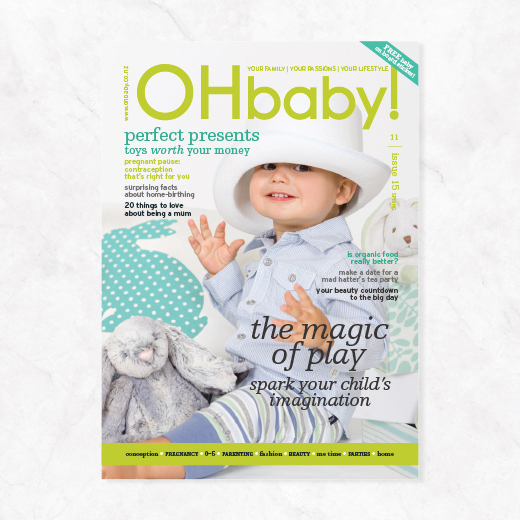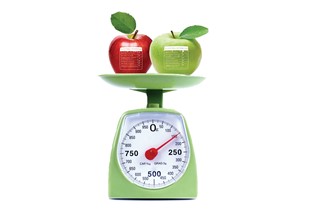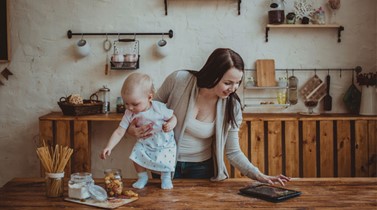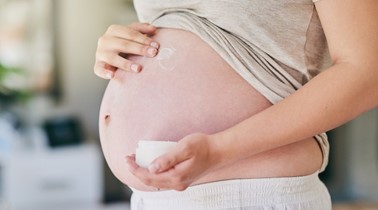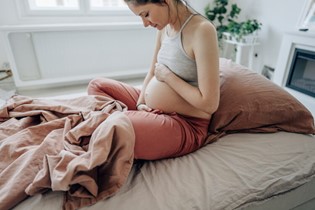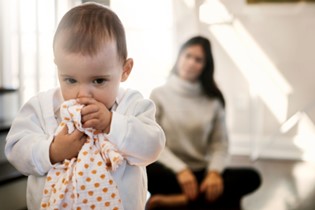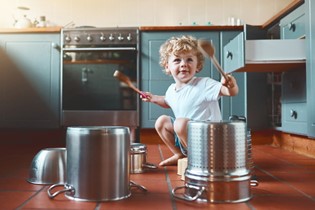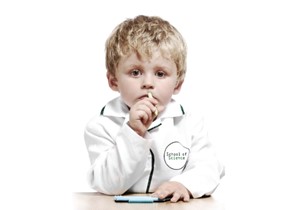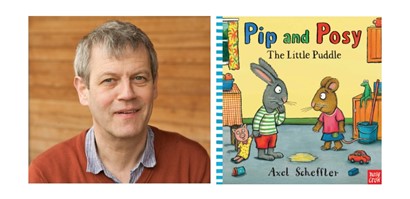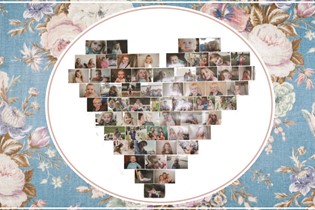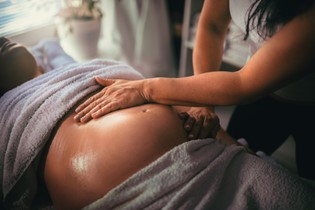Taking sides - Organic food
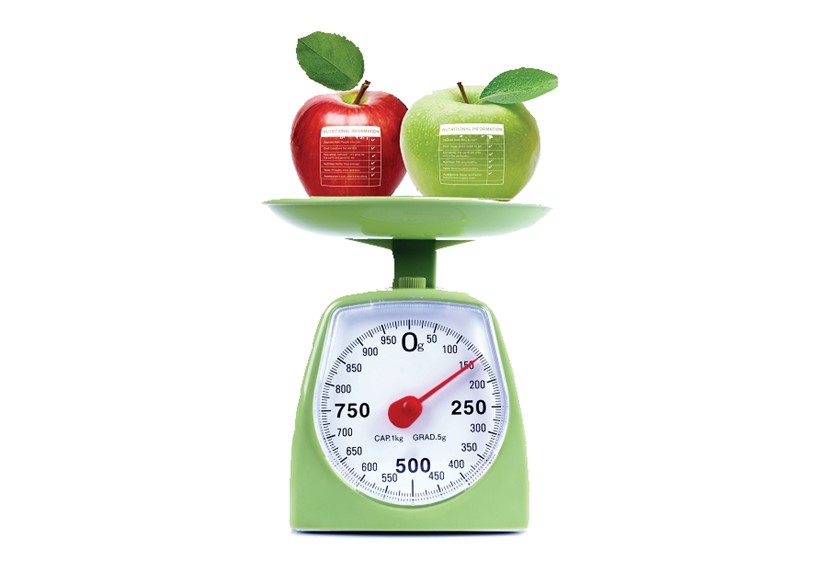
Taking sides: organic food
Should parents fork out the extra for "pure" produce when feeding the family? Liz Breslin and Laura Williamson look at the pros and cons of going organic.
It's better for your family:
My organic awakening came in my twenties. I was living in Japan. It was 1997. Supermarket shopping was a wondrous experience. Mochi, seaweed sheets and perfectly round apples - bigger than a newborn's head. I sent photos of these apples home, noticing, as I happy-snapped, a small, round blemish, barely visible, on one side.
"What's this?" I asked one of the other teachers. In a mastery of cross-cultural communication I learnt that was where the apple had been injected. With sugar? Hormones? I'm still not entirely sure. But that interaction made me re-evaluate what I look for in food when I'm shopping. Years later, I was proud to wear a T-shirt protesting against genetic modifications that made food last longer - for shipping to the other end of the globe.
Both of these examples sound like the ramblings of a hippie nut-job, right? Wrong. The fact is that we, as a society, are so far removed from our food chain that some of us might as well be made of 100% fat-free high-fructose fantasy. Pregnancy and my kids' early years were another chance for me to reaffirm a healthy connection with who I am. If we are what we eat, then I'd rather be a dirty, misshapen nutritious organic carrot than a perfectly formed lie of an apple. So the family's in it together, because I'm not a fan of preparing a different meal for everyone at the table.
I am a fan of organic farming, though, in its original definition. The term was coined in 1939 by a Lord Northbourne. His book, Look to the Land, considers a holistic, ecologically inclusive approach to farming, in contrast to chemical farms that rely on imported fertility and cannot sustain themselves. However, fast-forward 70 years and organic food production is a heavily regulated industry in its own right. Local farmers complain you must jump through a lot of expensive hoops to get the tick so I have learnt to go with the old maxim: Know your farmer, know your food.
Or even better, be your farmer. Yes, it is a privilege to plant your own garden and it's not for everyone. But I have met 18 year olds who think carrots come baby-sized and plastic-wrapped from the supermarket and are amazed to hear they come out of the ground. That will not be my kids. We buy organic seeds and reap the rewards.
And lest you think my poor kids will grow up to be organic lentil-munching hippies, let me reassure you that we are not against the odd bag of Twisties. Although actually, given the choice, they mostly prefer an apple from the tree to a snack pack. I was the same. Mum tells me she occasionally attempted to feed me from a tin, as a treat (for her, not for me). And I just refused to eat it. Every time. How inconvenient.
Kids are born with unsullied taste buds - why would you mess with that? Yes, it takes a bit longer to work out what's in your food. And that's when the organic certification ticks really come in handy. If you have to buy something pre-packed, then it's just peace of mind that you're not inadvertently feeding your kids evil chemicals. Need convincing? Two words: China. Formula.
To less extreme examples, a 2008 study in the BMC Neurology journal found that long-term exposure to pesticides (qualified in the report as mostly recreational, in the home and garden, as opposed to occupational pesticide exposure) can make you 1.6 times more likely to develop Parkinson's disease in later life. OK, so that's a small margin but then babies are small people. Their organs are developing. Their food intake is proportionally greater compared with their body size. It all matters. The American Environmental Health Perspectives website (http://ehp03.niehs.nih.gov) also makes for interesting reading. Published by the National Institute of Environmental Health Sciences, it has articles linking pesticide levels to miscarriage, neurological defects and childhood cancers. Actually, it's a great website for paranoid parents as both sides of the debate are aired in obfuscating scientific terminology.
My point is probably laughably simple. If there's a shred of evidence that eating well, eating locally, eating organically is good for your family, why wouldn't you do it? Yes, it can cost more if you get sucked into the token organic ranges brought out by the farm conglomerates who can afford to pay for the certification. Yes, planting potatoes and blending broccoli aren't for everyone. Yes, I probably blatantly am a lentil-eating hippy. But I have taken on the challenge of motherhood at a fundamental level. I see it as a responsibility to nurture my family.
Liz Breslin is a freelance writer based in Hawea Flat, Otago. She is the mother of twins, Dylan James and Lauren Marie, aged seven.
It may be just an expensive con:
I once caused a coffee group scandal. I admitted that, for the sake of convenience on a camping trip, I'd fed my son baby food from a jar. What can I say? I was tired and it was easier.
"Oh, we would never do that!" said one mother. "We're completely organic."
"Aren't you worried about additives?" exclaimed another, frowning, as if uttering the word "additives" had made her feel slightly unwell.
It wasn't always this way. My mother raised me on Gerber Baby Food. In her day, it was considered more hygienic and nutritionally better to serve "specially-formulated" processed baby food than meals prepared in the kitchen at home. We now know this isn't true (although I seem to have come out fine - except for a weakness for watching re-runs of Cougar Town, which I don't think is related to my early childhood diet). But what also isn't true is that "organic" automatically means better. Yet magazines and newspapers are full of organic food recipes and warnings about genetic engineering, irradiation, carcinogens and red food dyes. Fair enough, no one wants to stuff their kids full of irradiation, whatever that is. But before we shell out 10 bucks a breast for organic chicken, it might pay to stop and ask ourselves if it's really worth it.
For one, "organic" doesn't always mean, well, organic. This is because there is no government organic certification in New Zealand. Products labelled "organic" can be endorsed by private organic certifiers such as BioGro and AssureQuality, both reputable bodies. But because there is no legislation governing the use of the "O" word, non-certified producers using the term aren't technically subject to any rules at all. Check out any Ma and Pa stall at your local farmers' market - none of which will have gone through the time-consuming and expensive certification process - and every second head of lettuce will be proudly labelled "organic".
It's a valuable label. According to Organics Aotearoa New Zealand, the organic sector was worth $485 million to the New Zealand economy by 2009, up from $140 million in 2005. This is not a bad thing. Producing food without the use of synthetic pesticides or fertilisers, antibiotics or genetically altered organisms is perfectly noble. But it's also good marketing. Consumers will pay more for organic products so producers have a financial stake in labelling them as such. Organic is about more than health and the environment; sometimes it's about money.
Meanwhile, we may be demonising off-the-shelf food and regular meat and produce for no good reason. Our standards of mainstream food production stack up well globally. New Zealand doesn't grow GE produce, the poultry industry does not use growth hormones or steroids, and antibiotics are used in beef and lamb production only for therapeutic reasons. Any synthetic pesticides, herbicides or fertilisers are subject to extensive testing by the Ministry of Agriculture and Fisheries and users must follow strict guidelines in their application. Healthy eating is good for families. But pressuring time and cash-strapped parents to reject safe, affordable products in favour of more expensive organic brands is not.
In fact, to even be having this debate is to be in a position of privilege. For some, it's about buying apples they can afford, and they shouldn't be made to feel they are poisoning their children by doing so. As for the environment, if you're lucky enough to have an organic farmer as a neighbour, then by all means buy his eggs. But if you're in the same position as me and the nearest free range chicken farm is a two-hour drive away, while the guy just up the road sells eggs from barn-raised chickens, it's hard to argue that the free range option is more sustainable.
So why did my new-mother self spend the extra time at the supermarket hunting for the last piece of organic pumpkin? Why did I fork over the extra money for those $10 chicken breasts? Honestly, it wasn't because I knew for certain it was better for my child. I was afraid of the coffee group comments. I was trying to show I was a good mother.
The upshot? Organic has its downsides. We all want to feed our kids well. But it's more about commonsense - fruit and vegetables are better than ice cream, fresh meat is better than fast food - than labels. So buy organic if you want to. But don't feel you have to.
Laura Williamson is a Wanaka-based freelance writer and editor who has been published in newspapers here and overseas. Her son Liam is now six.

AS FEATURED IN ISSUE 15 OF OHbaby! MAGAZINE. CHECK OUT OTHER ARTICLES IN THIS ISSUE BELOW
